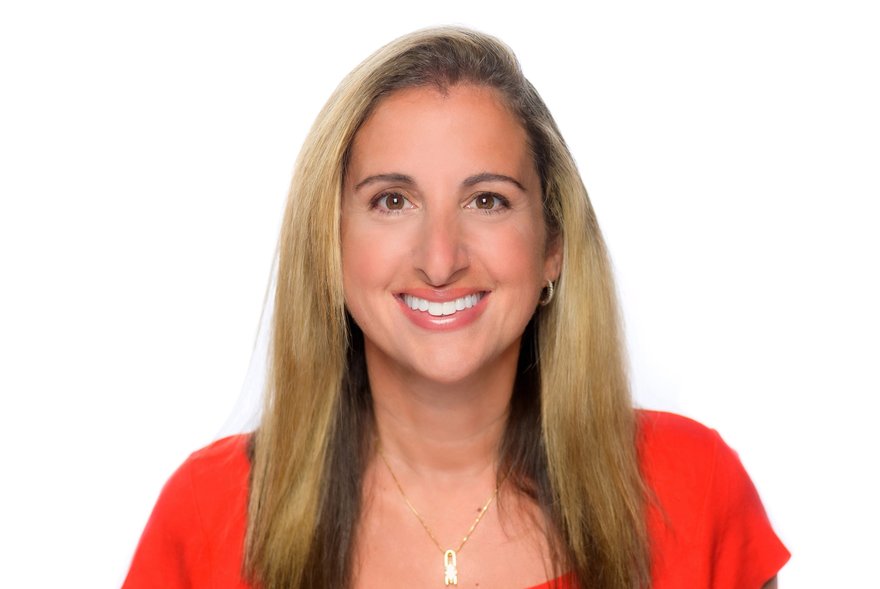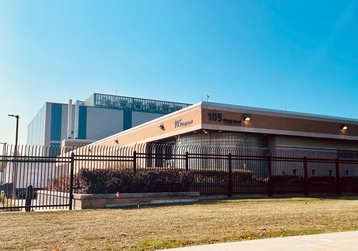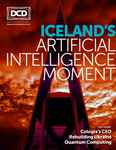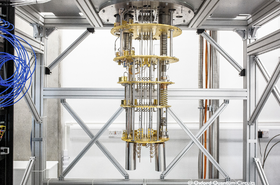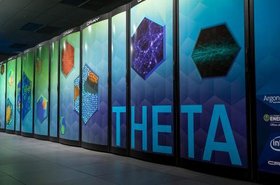For Laura Ortman, running a colocation company is all about the team. Cologix has data centers across North America, and it’s clear from her LinkedIn that she is a CEO who loves to get involved with her colleagues’ lives, from sports events to graduations.
“I grew up as an athlete and I'm a big football fan,” she says. “So, from a leadership standpoint, everything is very much team-focused for me. Part of our values and mantra here is ‘Together, we win.’”
She’s been with Cologix for five years, taking the CEO’s seat in late 2022. Before that she was at Equinix, and spent a significant time at VMware from 2008, when that company was getting to grips with virtualizing the world and building the foundations of the cloud.
Cologix started in 2010 and has ridden the expansion of data centers driven by the cloud. It now operates in 11 markets, from Florida to Vancouver, with around 375 employees. They may not all be as extroverted as Ortman, but she reckons she knows them all.
Cologix was founded by Grant van Rooyen and Todd Coleman from Level 3 Communications, a network company (now part of Lumen), and its business model has been network-centric, network-neutral facilities, with a carrier-dense ecosystem.
The company supports 700 networks, and 360 cloud service providers 30 clouds. Most recently, it bought up two data centers in Canada from bankrupt Cyxtera.
“There's a lot of Level 3 alumni that have started data center companies,” she observes. The company started in van Rooyen and Coleman’s home city Denver, and still has its headquarters there: “There’s very strong talent in Denver from a technology and data center perspective,” she says.
The previous CEO, now chairman of the board, Bill Fathers, also worked at VMware. He ran successful service provider Savvis, and then led VMware’s ultimately unsuccessful effort to become a cloud provider with vCloud.
Cologix supports enterprise, colocation, and hyperscale customers: “There’s a value in providing customers with a choice, right? We've had great success in being able to support both network nodes and compute nodes.”
The AI wave
All data center operators see the opportunity in the explosion of AI, but Ortman says it is “an additive to our solutions, not a replacement,” saying it will “drive demand in our current markets.”
With data centers in multiple locations, she believes Cologix is well-placed for the inference part of the AI wave: “We currently have AI-ready data centers that serve as the backbone for inference use cases, by providing computational power, low latency, scalability, security, reliability, and compliance.”
AI needs capacity, she says, but also a “collaborative ecosystem.” AI companies are having to grow rapidly to support their customers, as are the hyperscalers’ AI efforts. “We believe that our cloud on-ramps, our network connectivity, and our being able to provide space and power, is going to be key for them.”
It’s often quite hard to get concrete views on what all this AI is being used for, but Ortman says that Cologix is looking at using it within the company.
“We're looking at what can we do to drive efficiencies across Cologix,” she says. “We started a ground-up group that looks at how we can implement AI.”
The applications she mentions include using AI to help in French translation: “We've got a large presence in Montreal, Quebec.”
The company is also looking at AI from an operations standpoint, and the business’ engineering group says it is helping with software development.
We suggest to her that AI has so far not provided really revolutionary changes in data center efficiencies: “We're looking across our data centers, but what's the level of impact? Do we have the right resources to do this from a skillset perspective?”
Some data center applications for AI may be limited by security concerns over the customer data that would be used: “There is some hesitation specifically around security and compliance and making sure that the data is protected. There's a lot of forums happening with CISOs across the world to understand how can you ensure that there's the right level of security and compliance.”
That effort is going to take in multiple vendors: “We have great relationships with our peers and competitors,” she says. Harnessing AI will require partnerships: “I think as an industry that we can come together.”
Planning further out
The AI surge, alongside general growth in data centers, is a challenge: “We have to plan further out than we ever had to,” she says. “When you look at supply chains and power availability, in the last several years, we have had to plan even more than we had to during the pandemic.”
As well as expanding within the company’s existing markets, Ortman is looking for new markets where customer demand is expected to grow but wants to keep a balance between its digital Edge (small, local) and ScaleLogix (hyperscale) businesses.
“It has to make sense as part of our strategy, we don't want to veer towards one or the other,” she says. “We want to be able to provide that level of choice for our customers.”
For locations, she says the “NFL city” markets (the 32 cities with a team in the National Football League) will “always be very important to our customers,” Most of those are Tier 1 cities, but she is also “looking at Tier Two markets.”
Among those, “Columbus is a great example,” that has “been great for both digital Edge, hyperscale, and now for AI.”
She certainly agrees with the emerging view that Edge needs low latency, but that can be provided relatively easily with moderate-sized data centers in Tier 2 or smaller cities: “Edge means something different to a lot of different folks. For me, it's around the need for cloud service providers to have more Metro deployments and be physically closer to their end customers.”
To get closer to customers, she says, “I think we'll see that demand really pushing more to the Network Edge and aligning to cloud on-ramps.”
Leading for diversity
How is it going, we ask, leading Cologix? She talks about hiring good people, developing them, and trusting them.
“Trust is important,” she says. “It's around hiring talented people and empowering them to make the best decisions for Cologix for our customers. We hire very well to the skill sets that we need, but we want to empower them to really make a difference.”
She says: “I'm ultimately the one that that's held accountable, but we all do that across the company.”
She’s working hard on diversity as part of Cologix’s ESG strategy, and previously was part of the diversity leaders’ groups at Equinix and VMware: “This is a journey we started with gender diversity - that's been a large focus for Cologix. And we have more than 50 percent female representation on our leadership team.”
Further down the organization, there’s work going on. The company has a resource group for female employees called Cologix Women's Connection Network, and a leadership program aimed at helping high-performing, high-potential women to manage their career paths.
At the entry level, “we've set goals for ourselves to hire 15 percent female employees, and we're on track to beat that.” This means getting female technical and security staff, and then helping them to advance.
Fifteen percent might seem a small step, but it’s important to set realistic goals, she says: “I'm not a big believer of setting a goal that is going to be very hard to achieve initially, but I think we can get there. We know, as an industry, we have to drive more gender diversity, especially across more of the technical types of roles in our data centers,” she says.
“This is just the beginning of our diversity goals,” she continues, “and we're going to look at expanding that into other diverse groups, ensuring that all our employees feel included. A sense of belonging is important to us as a company.”
Data centers and the world
Digital infrastructure now has such a large footprint that no organization can afford to ignore what some call the “social contract” - the way a power-hungry facility interacts with the community around it.
In areas with a high concentration of facilities, like Northern Virginia, that relationship has become quite volatile, with protests and power crises.
Avoiding protests, she says, is a matter of being “very transparent around what we're doing and how we're helping the environment.”
As well as meeting ESG goals, operators need to “communicate what we're doing to help.” On the basics of energy use, she says Cologix is 65 percent carbon-free and uses 50 percent renewable energy.
“Page Haun, our chief marketing officer and ESG strategy officer, is on the board of the Data Center Coalition (DCC) in Virginia,” which is a good place to understand what is happening around power sources, says Ortman.
“As an industry, we're constantly trying to find creative solutions for the power needs, and we'll need to continue to work collaboratively with the utility providers. I think DCC is a great example of sharing what they're doing and bringing in the input of data center providers, and working together.
Beyond the power use issue, she’s very sure that when hyperscalers and large enterprise customers invest in a market, “it opens up - that is great for the economy.”
Thinking local
But that’s a bit abstract. How can you encourage people to like their local data center?
“I think it's very market-specific,” she responds, varying for data centers in “Montreal versus Minneapolis or Columbus or Santa Clara. I think you have to kind of tailor it a little bit by the market-specific needs.”
In the future, as ESG evolves, she sees on-site people at facilities helping them to learn better how to partner with the local markets.
“We all speak mostly the same language - outside of Montreal - but it's important to understand the culture and the needs of each market. Whether we're doing a marketing event, a customer event, or looking at land banking, we have to be sensitive to the cultural needs and the market needs.”
To make that happen, she trusts her local staff: “I'm very proud of our operational directors in each of these markets. We do market reviews of the opportunities, the challenges, and the demands. What are we doing locally to help?”
Cologix has social events to help with the community, and local employee resource groups: "There's a lot of focus on helping the community as well as communicating what we're doing, as a data center provider in those communities. I think those markets appreciate that.”
How have things changed?
With her years in the industry, has she seen a big change in how the industry treats women since she started?
“Things are definitely better than 20 or 25 years ago,” she says. “Back then, I wouldn't say that I had many mentors and sponsors that were women in leadership,” she says. She started out with a mentor who was “not a great mentor” but quickly learned how to have a good mentor-mentee relationship.
Spending nearly ten years at VMware was good, as the company had a positive record of female leadership, hiring women for technical and sales roles: “The men that I worked with were huge supporters of women in technology roles.”
Her VMware years “shaped the way that I look at the relationships that I build,” she says.
And she means that about the relationships: “I love to meet with all the employees. When I go to each of the markets, I meet with customers and partners, but my focus is really getting to know the team.”
She sums up: “Life is short, right? We all work very hard, and we all work together for many hours, so I genuinely enjoy getting to know our employees. It energizes me when I spend time with our team and with our customers and partners in the field.”
That’s something she learned early in her career, she says. “I used to work for managers that would be in their office and close the door all day and not spend any time with the employees.
“When I was at VMware, I didn't want to sit in an office. I was always a fan of being out in the cubicle world. I wanted to be with the engineers, and I wanted to be right with them learning. I learned very quickly that I did not want to be that type of leader.”
Cologix has a “culture club” which was important during lockdown, and she’s keeping the connection going: “We have employee engagement activities throughout the company and I join every single one if I can. I get bored if I miss an opportunity to be part of the Scavenger Hunt or Bingo Night because it's important for me to get to know our employees.”
But there are limits: “Not karaoke. The other things, I’m happy to do.”

